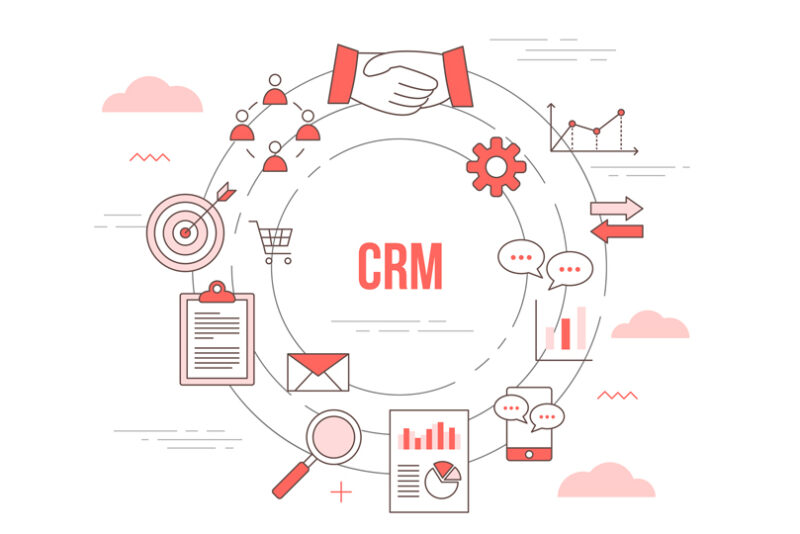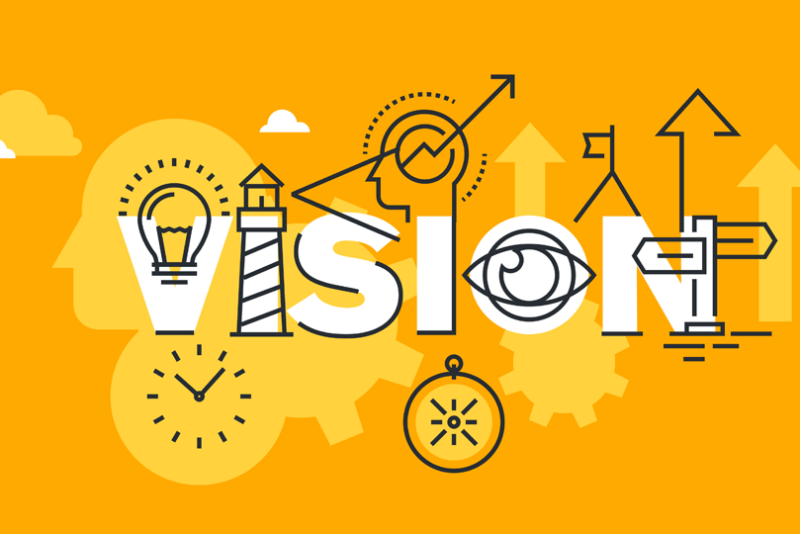What are the top 5 benefits of a CRM system?
What is a CRM, and how can a CRM benefit your business? This guide shares common problems that a CRM can overcome, along with some real-life benefits from our customers.
CRM Thought Leader Paul Greenberg defines Customer Relationship Management as:
‘A technology & system that sustains sales, marketing & customer service activities. It is designed to capture & interpret customer data, both structured & unstructured, & to sustain the management of the business side of customer-related operations. CRM technology automates processes & workflows and helps organise & interpret data to support a company in engaging its customers more effectively.’
There are many reasons why an organisation will decide to implement a new CRM strategy. Here, we’ve listed 16 frequently encountered business problems that a professionally implemented CRM solution will resolve.
Sales and marketing
- Sales administration is absorbing too much time. This involves compiling manual forecasts, long-winded quoting processes and duplicated effort to process completed orders.
- No marketing contact segmentation; hence, messages aren’t targeted and result in unsatisfactory volumes of leads.
- You don’t know how many leads your email campaigns generate or how many have converted into sales.
- Too many sales opportunities are lost because no one keeps in touch with prospects through follow-up calls or lead nurturing messages.
- You can’t see a clear view of each customer relationship in one application, including their order history.
Customer service teams
- Customer churn is too high. Existing accounts aren’t segmented effectively, and staff aren’t prompted to follow up and engage with customers proactively.
- Data is stored in different places, preventing anyone from seeing the full picture. This results in poor communication and weak service when important customers aren’t easily identified, and relationship information isn’t readily available.
- Service requests aren’t being dealt with efficiently, and customer issues are frequently missed due to poor visibility and reporting of outstanding items.
Business intelligence
- Decision making is based on ‘gut feel’ and guesswork because reports aren’t trusted or easily compiled.
- You can’t confidently predict cash flow or production requirements because supporting forecasts aren’t available or are incomplete.
- Key performance indicators aren’t being measured, so some problems are swept under the carpet and high achievers aren’t consistently recognised.
Managing contacts & processes
- Teams are using a mix of systems, but none of them connect. As a result, many processes are duplicated, and time is wasted.
- People are less effective when they’re away from the office because they can’t get access to the information they need.
- Many processes and checks rely on the manual intervention of a small group of people or just one person, which is prone to failure when these individuals aren’t available.
- Many workflows consist of repetitive, time-consuming processes. Routine tasks take too long to fulfil, resulting in uncompetitive operational costs.
- Your client data isn’t secure. Any team member can easily copy customer lists into a spreadsheet.
What are the top benefits of CRM?
1. Connect with Customers
The main purpose of a CRM system is to support a business in engaging its customers. Without a clear understanding of the history and current status of each relationship, the ability of staff to exceed client expectations will be severely restricted.
CRM creates a single truth about each relationship that is accessible from a consistent interface wherever people work. Often, a better solution will be sought to replace unconnected applications, spread-sheets, paper files or customer detail being committed to memory.
In some instances, CRM will be connected to external data sources including accounting systems and websites to pick up interactions across every touch point for a coherent and complete relationship picture.
As a result, CRM users are empowered to deliver a responsive service and delight customers which ultimately contributes towards increased client retention.
Building relationships and increasing sales is another way how CRM helps businesses connect with customers. This includes:
- Identifying the most valuable accounts and delivering appropriate service levels
- Using relationship and order detail to discover new upsell and cross sell opportunities
- Opportunity management to help sales individuals connect with the right prospects at the right time
- Integrated campaigns that nurture customers and alert team when individuals respond
- Increased lead generation using segmented lists and personalised messages that resonate
2. Grow Efficiently
By better aligning people and business processes, CRM systems help organisations achieve greater scale and grow efficiently.
Some examples of this include:
-
- Replace repetitive manual tasks with smart automated workflows that complete actions and send automated emails which cuts administration and eliminates duplication.
- Avoid jumping between systems by managing all workflows in a single interface. This can include service cases, contracts, projects, events and application requests.
- Apply business rules, methodology and best practice to CRM workflows enabling users to follow guided steps and reach successful outcomes when handling sales leads, service issues and other business processes.
- CRM fosters a positive team culture and improves communication as individuals share information, collaborate effectively and gain a better understanding of other areas in your organisation.
- Improved productivity through better time management as CRM prompts users when important events occur, or if actions are missed.
- Gain more value from existing technologies. Using the example of Microsoft Dynamics 365 this utilises familiar solutions including Outlook, Office 365, Skype and Sharepoint.
3. Discover New Insights from Business Data
With all relationship and process data available via a single interface, it means that timely, informed decisions can be made enabling organisations to operate with increasing greater agility. CRM helps organisations tap into these insights and differentiate their offering with data-driven outcomes rather than an over-reliance on gut-feel decisions.
For a sales team this might mean trusted pipeline reports that are used as the basis for reliable sales and production forecasts to predictably manage cash flow. In a marketing scenario, teams can determine how responsive their audience is enabling them to convert prospects, or adjust tactics to engage contacts who aren’t responsive.
Service managers can rely on CRM data to understand how many service issues were logged during a period of time, recent volume trend, most common type of issues raised etc.
Connect CRM with Power BI to visualise data, follow trends, drill down to better understand performance and gain further actionable insight.
Modern CRM cloud technology includes embedded artificial intelligence providing further insight and driving proactive actions. This can include intent analysis from social media posts, highlighting customer questions in tracked emails, sensor alerts from installed customer equipment, or revealing trends in a the health of client relationships based on the frequency of contact.
4. Do Business Anywhere
Through mobile apps, web interface and offline access, CRM technology empowers people to get work done anywhere. Whether you are working in your office, or on the go, you have a set of productivity tools to create, edit or collaborate on the processes and business relationships that matter to you.
With staff able to connect to CRM on-demand they can immediately respond to client requests, react to leads, and manage existing accounts. Mobile CRM apps that are fast, easy to use, intuitive, and fit a mobile lifestyle are rapidly adopted. Extending these solutions into customer facing roles and processes will result in higher use of CRM and increasingly productive staff.
5. Safeguarding Business
Control access to your important customer and business information by securely storing data in the cloud. With advanced protection and automatic back-up, this data is protected from unexpected events.
CRM security profiles and settings enforce controls so that teams and individual users have appropriate permissions to access records consistent with their role.
With data held in the cloud, CRM immediately offers significantly greater protection compared to storing customer data locally in spreadsheets, or legacy on-premise applications.
Examples of CRM security controls include:
- Restrict access for account managers to only view their own records
- Advanced hierarchy security to manage access between senior users and subordinates
- Withhold delete permissions
- Prevent users from exporting CRM data to Excel
- Wipe CRM data if mobile devices are lost, or if individuals leave the organisation
- Protect sensitive data with field level security controls
Through smarter processes, connected apps and new insights gained from business data, CRM helps organisation develop new customer centric business models that support strategic growth plans.
ANS Group has more than 20 years’ experience helping companies implement new CRM platforms, offer ongoing CRM support and get results from their CRM technology. Contact us to discuss our approach and find how we can help you.





